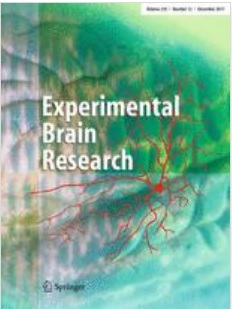Motor imagery has been argued to affect the acquisition of motor skills. The present study examined the specificity of motor imagery on the learning of a fine hand motor skill by employing a modified discrete sequence production task: the Go/NoGo DSP task. After an informative cue, a response sequence had either to be executed, imagined, or withheld. To establish learning effects, the experiment was divided into a practice phase and a test phase. In the latter phase, we compared mean response times and accuracy during the execution of unfamiliar sequences, familiar imagined sequences, and familiar executed sequences. The electroencephalogram was measured in the practice phase to compare activity between motor imagery, motor execution, and a control condition in which responses should be withheld. Event-related potentials (ERPs) and event-related lateralizations (ERLs) showed strong similarities above cortical motor areas on trials requiring motor imagery and motor execution, while a major difference was found with trials on which the response sequence should be withheld. Behavioral results from the test phase showed that response times and accuracy improved after physical and mental practice relative to unfamiliar sequences (so-called sequence-specific learning effects), although the effect of motor learning by motor imagery was smaller than the effect of physical practice. These findings confirm that motor imagery also resembles motor execution in the case of a fine hand motor skill.

